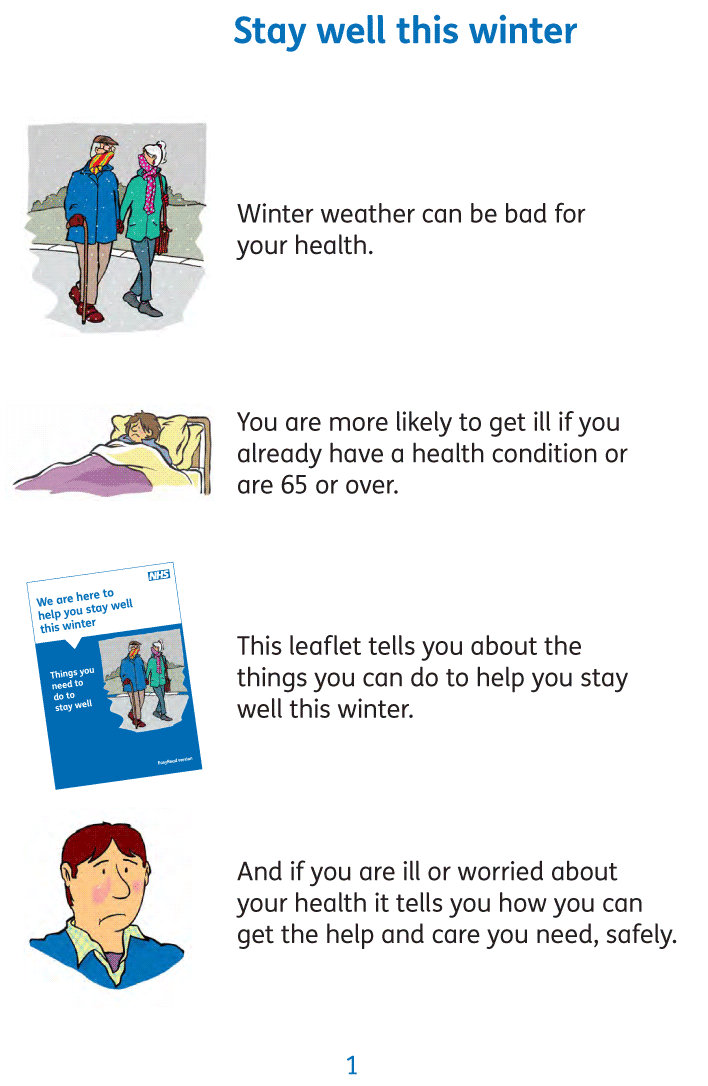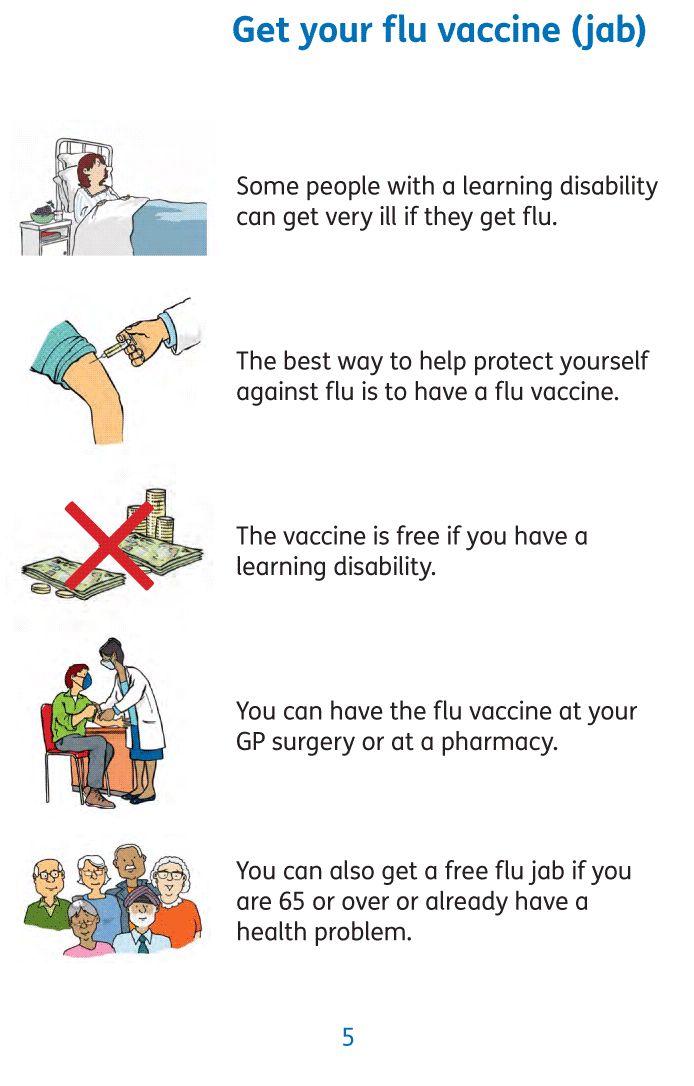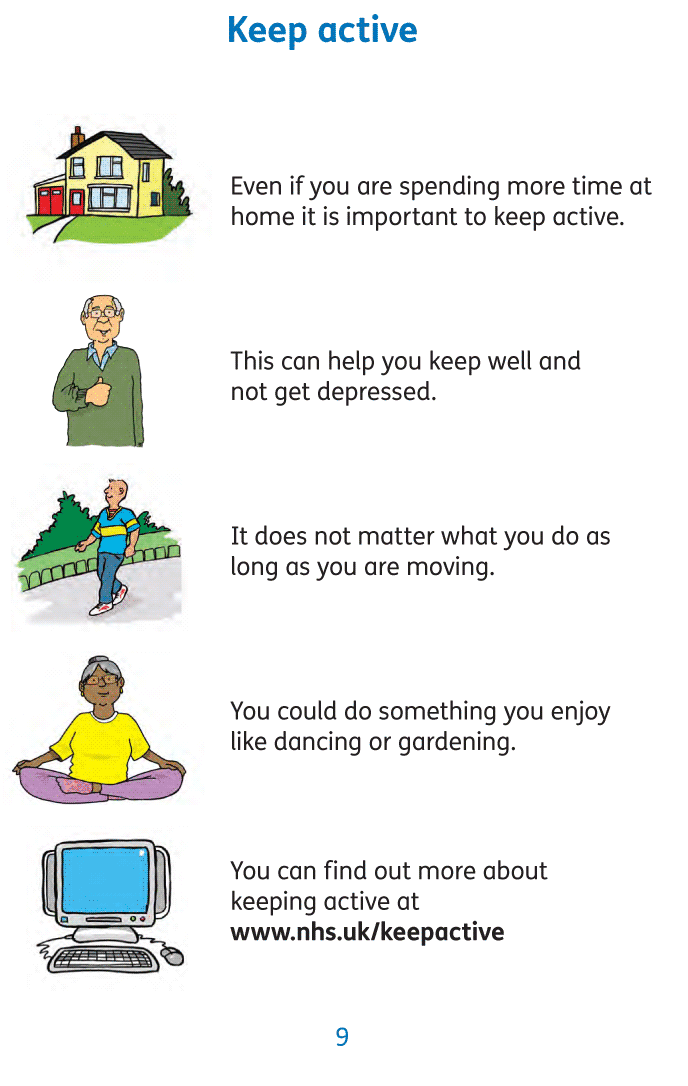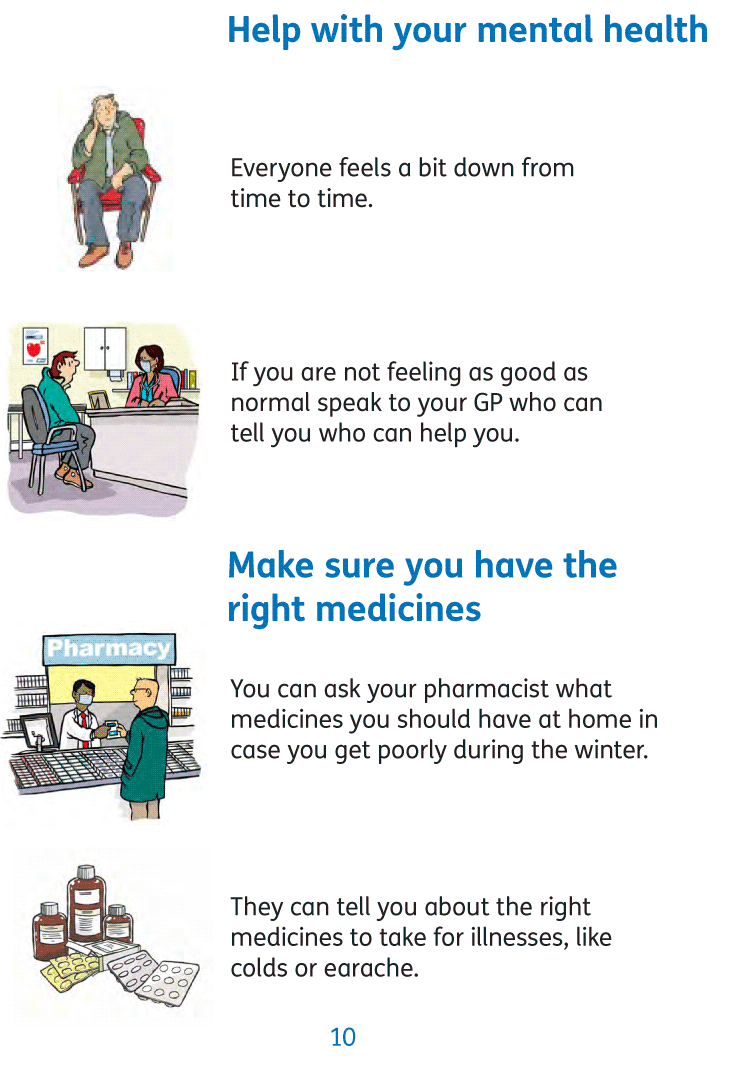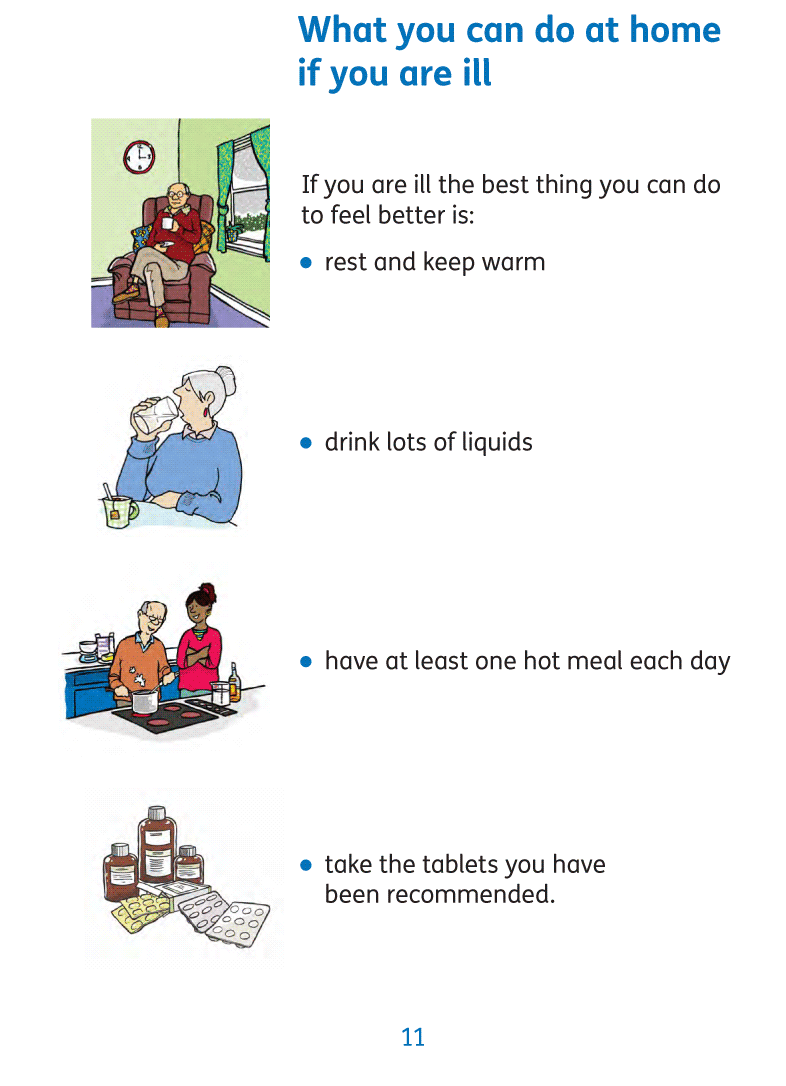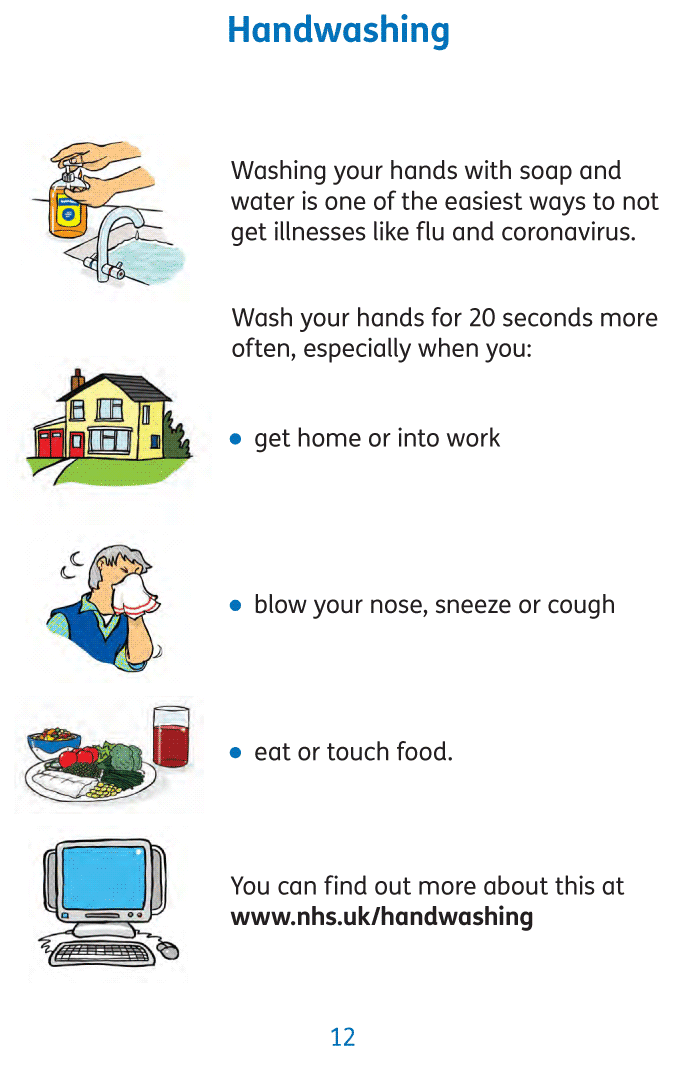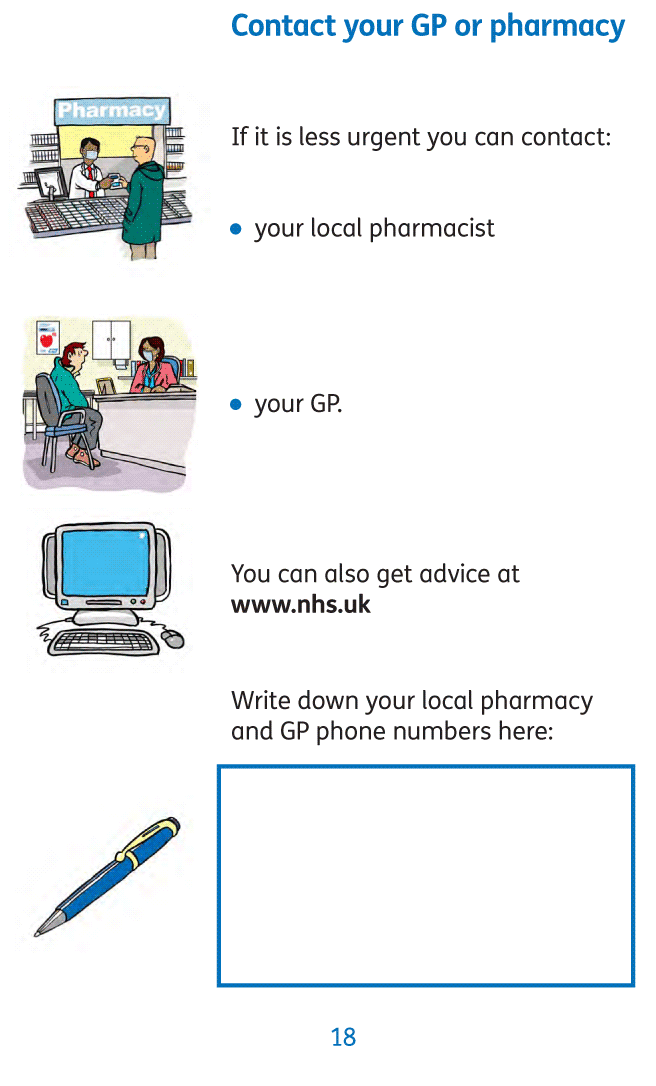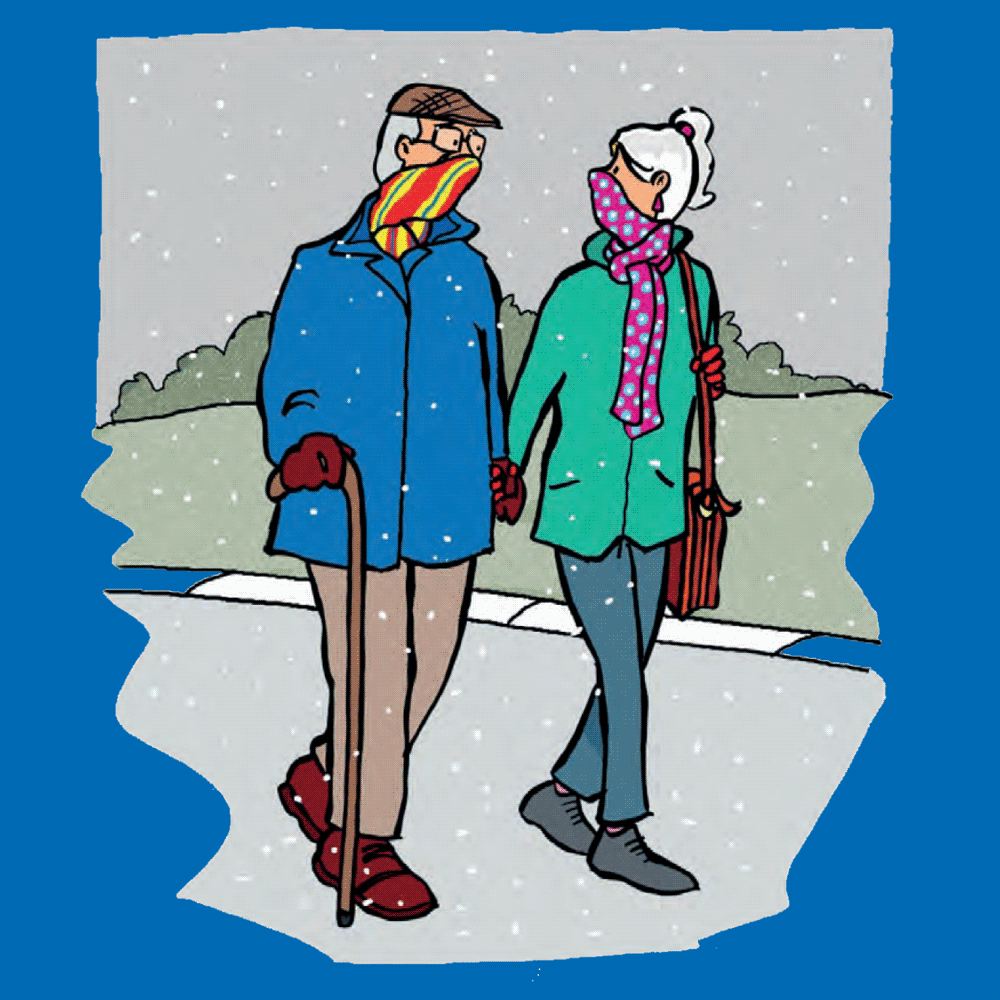Stay Well This Winter
This stay well this winter guide is available in three versions on this page: text, image, and PDF download. Please choose the option you would like to read.
Winter Wellness – Text Version
Winter Wellness – Image Version
Winter Wellness – PDF Download
Stay Well This Winter – Text Version
We are here to help you stay well this winter
Things you need to do to stay well
Stay well this winter
Winter weather can be bad for your health.
You are more likely to get ill if you are 65 or over, or you already have a health problem.
This leaflet tells you about the things you can do to help you stay well this winter.
And if you are ill or worried about your health it tells you how you can get the help and care you need, safely.
You may like to have someone to support you when you look at this leaflet.
Face coverings and PPE
If you do need to see an NHS worker, like a pharmacist or GP they might be wearing personal protective equipment (you might sometimes hear this called ‘PPE’).
This is things like a mask, a face shield, gloves and a gown. They wear this so they can work safely and help stop coronavirus spreading to other people.
If you think you have coronavirus
You need to have a test as soon as possible if you think you have one or more of the signs of coronavirus.
The main signs of coronavirus are:
- a high temperature
- a new cough that does not stop
- not being able to smell or taste things like food, or they taste different.
You can get a test by phoning 119 or going on the website.
We tell you more about how to do this at the end of this leaflet.
What to do if you are feeling ill and it’s not coronavirus
If you are feeling unwell the sooner you find out what is wrong the better.
Your local pharmacist can help with minor illnesses like colds. If you cannot get to a pharmacy you can phone them or ask someone to go for you.
You can have an appointment with your GP by phone and online. If they need to see you they will tell you what to do.
If you need help fast you can go to NHS 111 by phone or online.
We tell you more about how to do this at the end of this leaflet.
Get your flu vaccine (jab)
Some people with a learning disability can get very ill if they get flu.
The best way to help protect yourself against flu is to have a flu vaccine.
The vaccine is free if you have a learning disability.
You can have the flu vaccine at your GP surgery or at a pharmacy.
You can also get a free flu jab if you are 65 or over or already have a health problem.
If you are 65 or over you can also get another jab for diseases like pneumonia.
If you have young children or grandchildren they may also be able to get the free flu nasal spray.
And if you care for an older person or a person with a disability you may be able to get a free flu jab.
Your GP or pharmacist can tell you more about getting the flu vaccine.
You can also find out more about the flu jab at
www.nhs.uk/fluvaccine
Keep warm
In the winter it is important you keep warm when you are inside or outdoors.
This can help stop you getting colds, flu and more serious health problems.
Make sure you:
1. Heat your home to at least 18°C (65°F) if you can. You might prefer your main living room to be a bit warmer than this.
2. Keep your bedroom window closed on cold nights so you do not breathe cold air.
3. Move around indoors and try not to sit still for more than 1 hour.
4. Wear lots of layers of thin clothes.
5. Find out how you could pay less to heat your home at www.simpleenergyadvice.org.uk
6. Get someone to check your cooker and heaters are safe. Make sure they are registered with Gas Safe. You can find out more about this at www.gassaferegister.co.uk
Keep active
Even if you are spending more time at home it is important to keep active.
This can help you keep well and not get depressed.
It does not matter what you do as long as you are moving.
You could do something you enjoy like dancing or gardening.
You can find out more about keeping active at
www.nhs.uk/keepactive
Help with your mental health
Everyone feels a bit down from time to time.
If you are not feeling as good as normal speak to your GP who can tell you who can help you.
Make sure you have the right medicines
You can ask your pharmacist what medicines you should have at home in case you get poorly during the winter.
They can tell you about the right medicines to take for illnesses, like colds or earache.
What you can do at home if you are ill
If you are ill the best thing you can do to feel better is:
- rest and keep warm
- drink lots of liquids
- have at least one hot meal each day
- take the tablets you have been recommended.
Handwashing
Washing your hands with soap and water is one of the easiest ways to not get illnesses like flu and coronavirus.
Wash your hands for 20 seconds more often, especially when you:
- get home or into work
- blow your nose, sneeze or cough
- eat or touch food.
You can find out more about this at www.nhs.uk/handwashing
Prescriptions
Make sure you have all the medicines you need before your pharmacy or GP surgery closes for Christmas.
If you are given any antibiotics or other medicines, remember to take them as your GP or pharmacist tells you.
You can also order your repeat prescriptions and make GP appointments online using the NHS App.
You can get the NHS App from the App Store or Google Play. You can find out more at www.nhs.uk/nhsapp
Look out for other people
Remember to keep in touch with your older friends, family and neighbours over the winter.
Ask if they are feeling OK and if they need any help.
If the roads and pavements are icy, older people might not be able to get out.
Make sure they have enough food for a few days.
If older people have to go out in the cold they should wear:
- shoes with a good grip
- a scarf round their mouth to stop the cold air getting in.
And make sure they have all the medicines they need before the Christmas holiday starts.
If they need help over the holidays when their GP or pharmacy is closed they can contact NHS 111 by phone or online.
We tell you more about how to do this at the end of this leaflet.
Get help from NHS Volunteer Responders
If you need help, NHS Volunteer Responders can help with things like shopping or even a friendly chat.
You can contact them between 8am and 8pm on 0808 196 3646.
5 things to remember
- Get a flu jab.
- Heat your home to at least 18°C (65°F) if you can.
- Find out about help to pay for your heating at www.simpleenergyadvice.org.uk
- If you start to feel ill contact NHS 111 by phone or online.
- Check on other people who might need extra help in the winter.
Where to go for the right medical help
If it is a real emergency and life threatening then you can call 999.
Phone or go online to NHS 111
If you need help and advice but it is not an emergency you can go to NHS 111.
To contact NHS 111 you can:
- go online to 111.nhs.uk
- or phone 111
By answering a few questions about what is wrong you will be told what to do and where to go.
Contact your GP or pharmacy
If it is less urgent you can contact:
- your local pharmacist
- your GP
You can also get advice at
www.nhs.uk
How to get a coronavirus test
You need to have a test as soon as possible if you think you have one or more of the signs of coronavirus.
- go online to www.nhs.uk/coronavirus
- or phone 119.
If you are worried about your symptoms phone 111 or go to 111.nhs.uk/covid-19
Stay Well This Winter – Image Version

